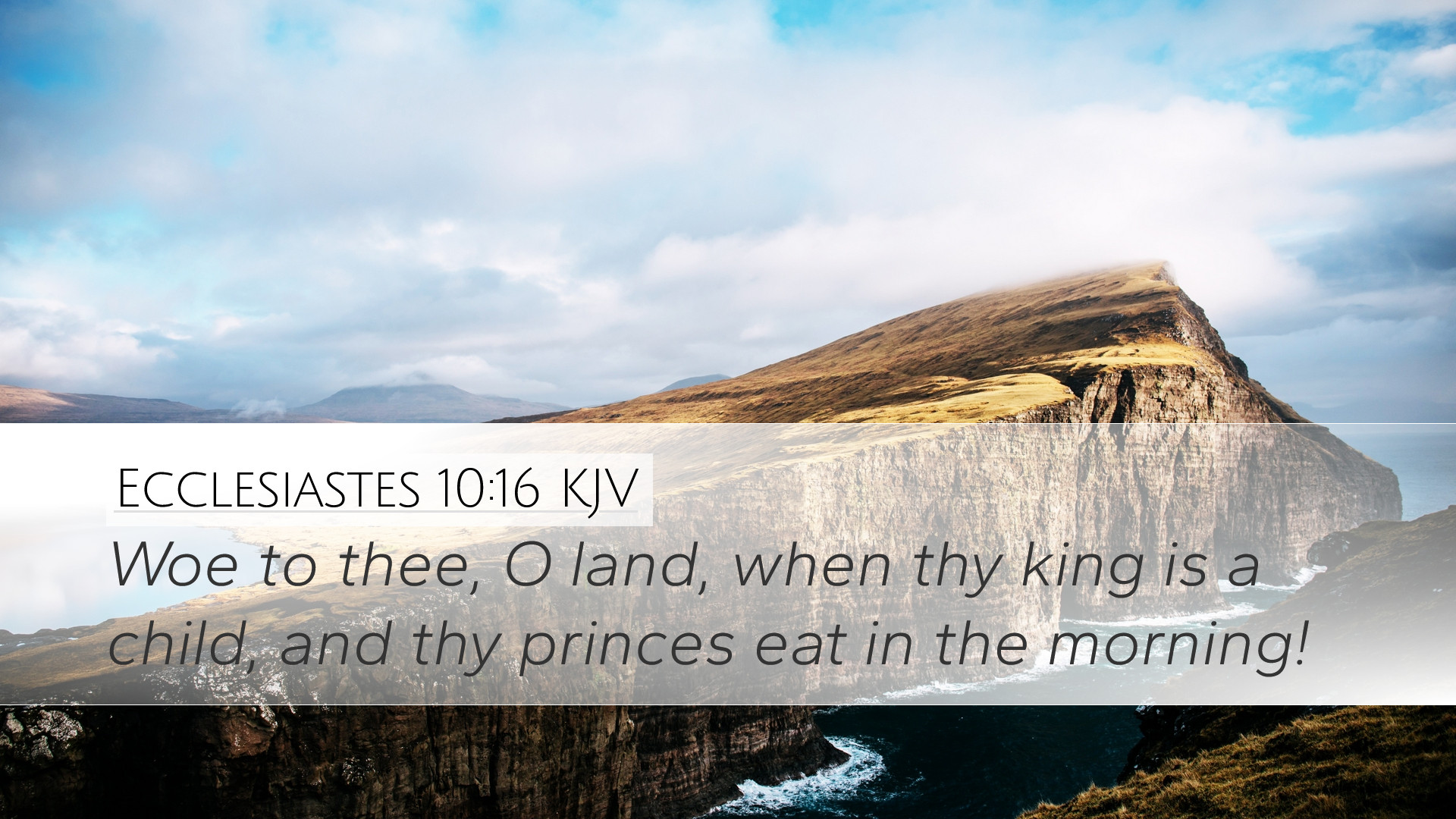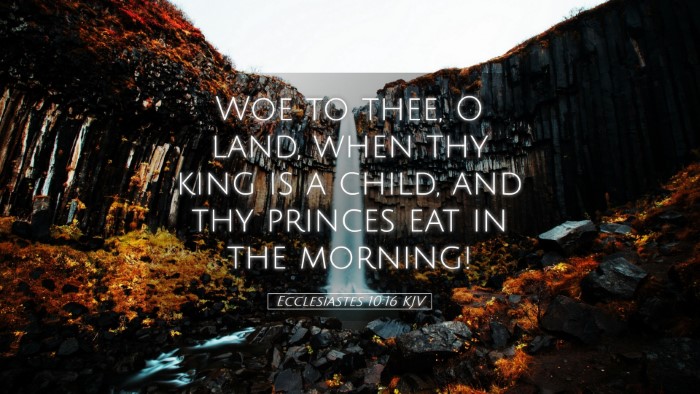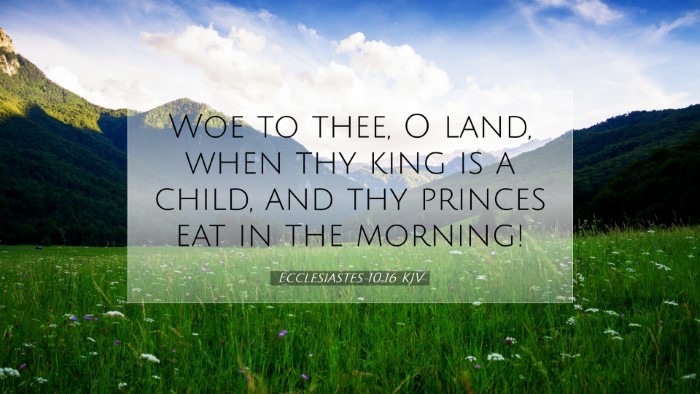Commentary on Ecclesiastes 10:16
Verse Context: Ecclesiastes 10:16 states, "Woe to thee, O land, when thy king is a child, and thy princes eat in the morning!" This verse serves as a critique of poor leadership and its implications for society, specifically regarding governance and the behaviors of those in authority.
Insights from Matthew Henry
Matthew Henry reflects on the meaning of this verse by addressing the qualifications of a ruler. He notes that a king being "a child" signifies immaturity and lack of experience. Such a ruler is ill-equipped to make wise decisions and guide a nation effectively.
Henry emphasizes that a king must possess wisdom and discernment. When leaders lack these qualities, the entire land suffers. The phrase "princes eat in the morning" points to indulgence and mismanagement, suggesting a lack of discipline and a tendency towards excess among those in power.
Insights from Albert Barnes
Albert Barnes elaborates on the social implications of the verse. He suggests that when a child's rule is present, it reflects a broader societal failure. Barnes points out that the "land" becomes a metaphor for the people's experience under such leadership, resulting in instability and strife.
Furthermore, he highlights that "princes eating in the morning" suggests a lack of seriousness in governance. It conveys the idea that while the rulers indulge, the people may suffer. This neglect can lead to societal decay and moral corruption.
Insights from Adam Clarke
Adam Clarke analyzes the cultural implications of the text, providing an understanding of the historical context. He notes that youth in leadership positions often leads to impulsive decisions driven by passion rather than wisdom. This kind of governance prompts fear for the future of a nation.
In terms of the phrase "eating in the morning," Clarke suggests that the context reflects a lack of responsibility. In the culture of the time, such behavior indicated that rulers prioritize their pleasures above their duties to the nation.
Theological Reflection
This verse serves as a poignant reminder of the importance of wisdom in leadership, both politically and spiritually. The analogy of a child's rule challenges leaders to pursue maturity and righteousness. Pastors and theologians may use this verse to reflect on the role of spiritual leaders as guides who must exemplify godly wisdom.
Moreover, the consequences of irresponsible leadership give rise to the need for accountability in both church and state. Just as the princes are called to a higher standard, so too are spiritual leaders. They must ensure their actions reflect a commitment to service over self-gratification.
Conclusion
Ecclesiastes 10:16 acts as a cautionary tale about the nature of leadership. It is a sobering reminder for pastors, students, and theologians to recognize the weight of their responsibilities. Wisely leading a congregation, organization, or community is crucial for fostering strength and stability within the body of Christ and beyond.
As we reflect upon this verse, let us aspire to cultivate wisdom, discipline, and accountability in our leadership structures. It encourages ongoing dialogue about the qualities required for faithful stewardship, urging us to diligently seek God's guidance in every decision.


